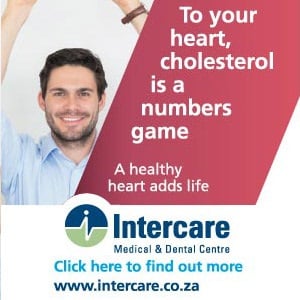
Normally, the liver makes all the cholesterol the body needs, but cholesterol also enters your body when eating animal based food products such as milk, eggs and meat. Too much cholesterol in your body is a risk factor for heart disease.
When there is too much cholesterol in your blood, it builds up in the walls of your arteries. The arteries become narrowed and blood flow to the heart muscle is slowed down or blocked.
The blood carries oxygen to the heart, and if enough blood and oxygen cannot reach your heart, you may suffer chest pain. If the blood supply to a portion of the heart is completely cut off by a blockage, the result is a heart attack.
There are two forms of cholesterol: Low-density lipoprotein (LDL or "bad" cholesterol) and high-density lipoprotein (HDL or "good" cholesterol.) LDL is the main source of artery-clogging plaque. HDL actually works to clear cholesterol from the blood.
Triglycerides are another kind of fat in our bloodstream. Research shows that high levels of triglycerides may also be linked to heart disease.
Symptoms of High Cholesterol
High cholesterol itself does not cause any symptoms. It is therefore important to know what your cholesterol levels are. Lowering cholesterol levels that are too high lessens the risk of developing heart disease.
Risk Factors for Developing High Cholesterol
Many factors can increase your risk of developing high cholesterol, but most of them can be controlled. Risk factors that you cannot control are:
• Gender and age. Being a man or a post-menopausal woman increases your risk of high cholesterol.
• Family History. A family history of high cholesterol can put you at risk as well. If high cholesterol is due to inherited genes, a person could be born with high levels of LDL cholesterol and must work with their doctor to control it.
• Diet. A diet high in saturated fat or trans fat and sugar can elevate your "bad" LDL and triglyceride levels and raise your overall risk of high cholesterol.
• Obesity. A body mass index (BMI) of 30 or more puts you at greater risk of high cholesterol.
• Smoking damages your arterial walls, making them more susceptible to plaque buildup. It may also lower your “good” HDL cholesterol.
• Diabetes. People with diabetes are more likely to have low levels of “good” HDL cholesterol and high levels of “bad” LDL cholesterol. High blood sugar can damage the lining of the arteries and, when coupled with high cholesterol, increase the risk of plaque build-up.
You can lower your cholesterol by exercising and eating more fruits and vegetables, but you may also need to take medicine to lower your cholesterol.




 Publications
Publications
 Partners
Partners










